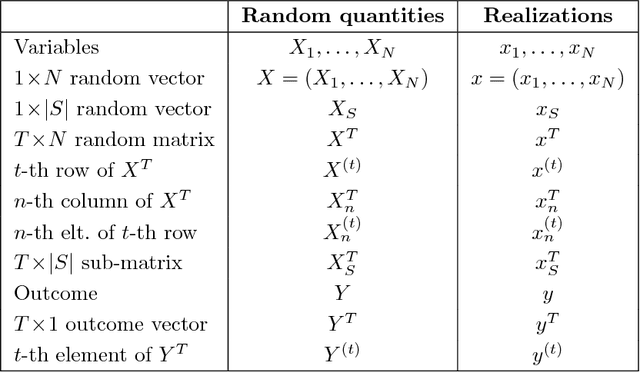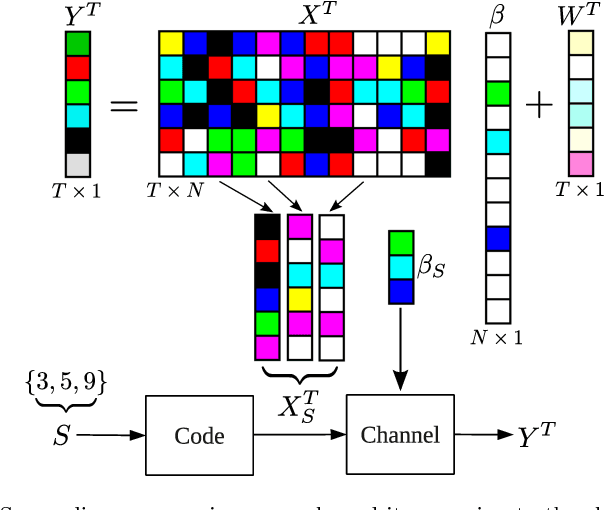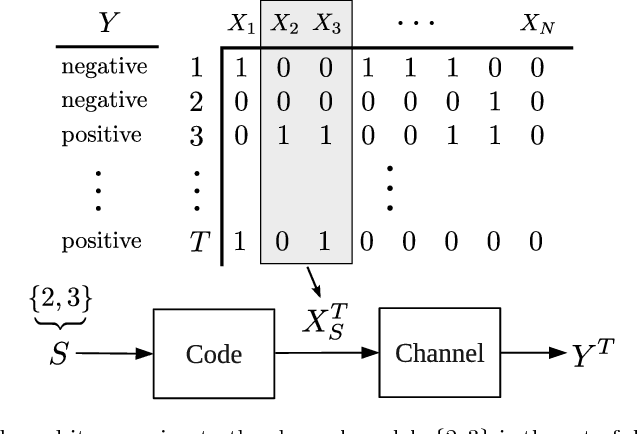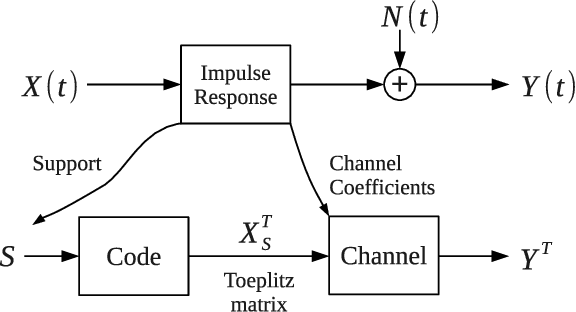Sparse Signal Processing with Linear and Nonlinear Observations: A Unified Shannon-Theoretic Approach
Paper and Code
Aug 25, 2016



We derive fundamental sample complexity bounds for recovering sparse and structured signals for linear and nonlinear observation models including sparse regression, group testing, multivariate regression and problems with missing features. In general, sparse signal processing problems can be characterized in terms of the following Markovian property. We are given a set of $N$ variables $X_1,X_2,\ldots,X_N$, and there is an unknown subset of variables $S \subset \{1,\ldots,N\}$ that are relevant for predicting outcomes $Y$. More specifically, when $Y$ is conditioned on $\{X_n\}_{n\in S}$ it is conditionally independent of the other variables, $\{X_n\}_{n \not \in S}$. Our goal is to identify the set $S$ from samples of the variables $X$ and the associated outcomes $Y$. We characterize this problem as a version of the noisy channel coding problem. Using asymptotic information theoretic analyses, we establish mutual information formulas that provide sufficient and necessary conditions on the number of samples required to successfully recover the salient variables. These mutual information expressions unify conditions for both linear and nonlinear observations. We then compute sample complexity bounds for the aforementioned models, based on the mutual information expressions in order to demonstrate the applicability and flexibility of our results in general sparse signal processing models.
 Add to Chrome
Add to Chrome Add to Firefox
Add to Firefox Add to Edge
Add to Edge